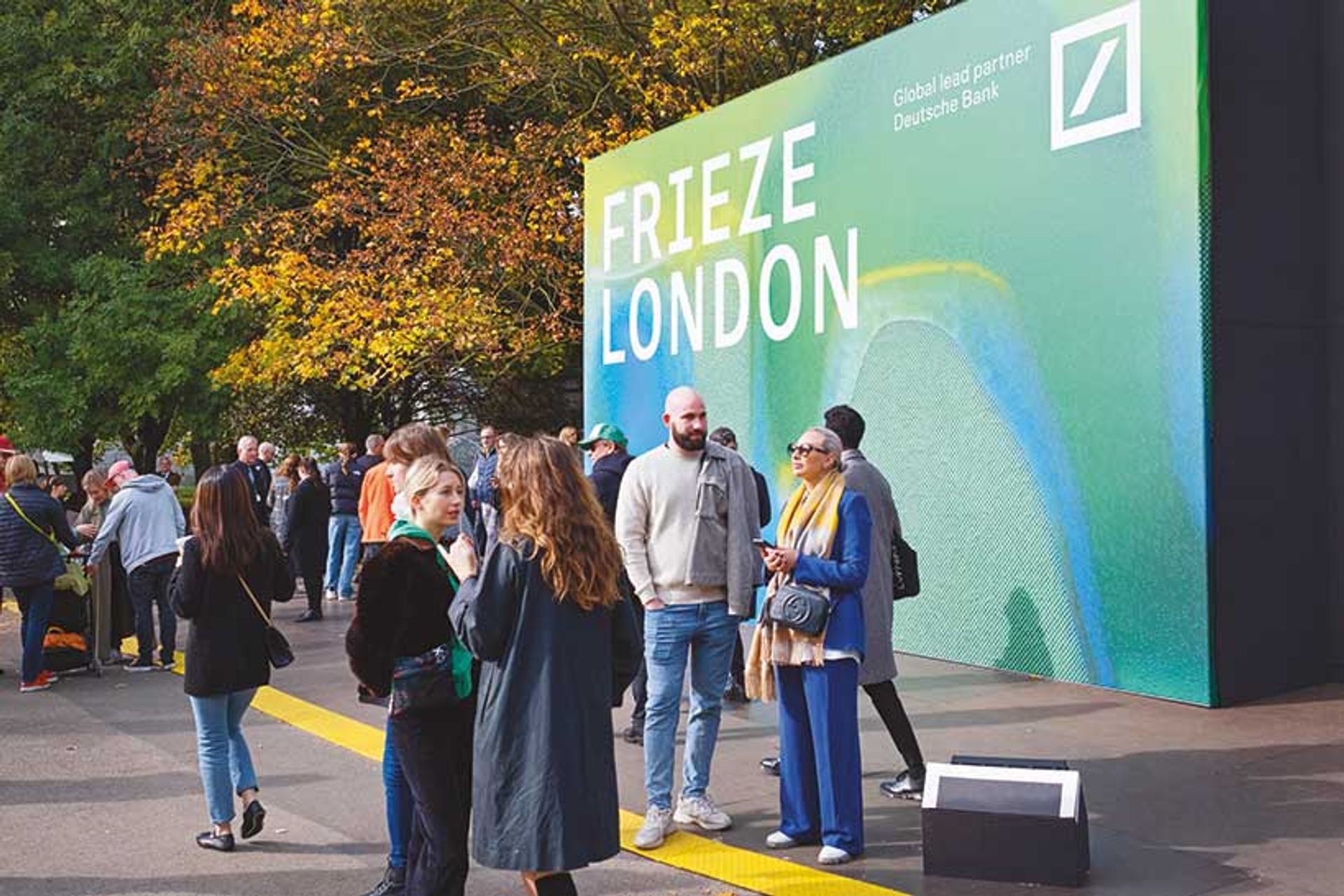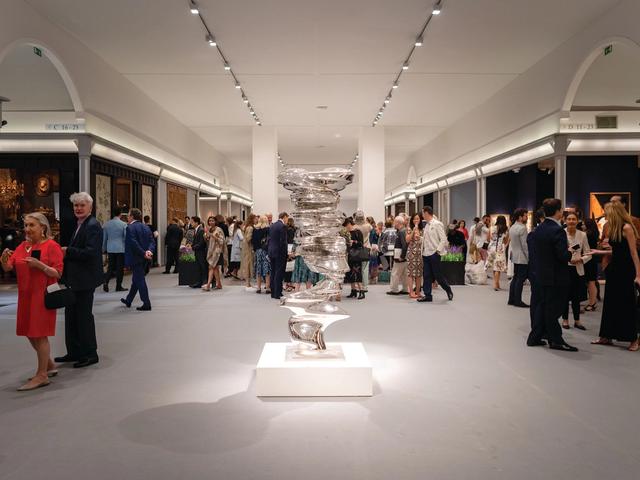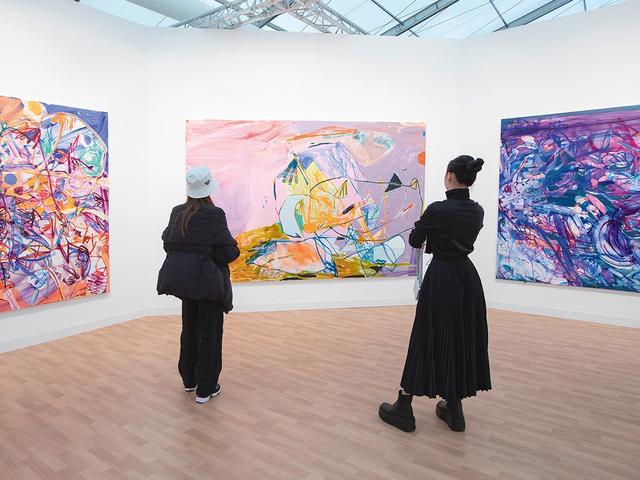As the art world reflects on Brexit three years on, one of our leading artists is producing a striking conceptual response to it. Anish Kapoor has chosen from now on to refer to the UK’s exit from the EU as “Broxit”. When I ask him where the country and the art community go from here, he replies by email: “Down the drain, with Broxit.”
What about the government? Is it sufficiently interested in problems for artists post-Brexit? Kapoor says: “The government has its right-wing nationalist agenda. It pays lip service to help—we don’t need help; we need a progressive agenda. Pathetically, even Labour has stupidly and without listening to the country, decided to back Broxit. Cowardly and shameful with no recognition that this is anti-history.”
Kapoor produced a work in 2019 called A Brexit, A Broxit, We All Fall Down, representing a bird’s-eye view of the British Isles with a great red fissure or wound down the length of the country. He chooses to let his neologism on Brexit speak for itself. All he needs now is to daub it on a gallery wall and fire wax cannonballs at it to complete a damning critique of our national change of direction.
The artist Sean Scully is a little more sanguine. “The UK is an island nation. This is deep in its self-understanding,” he says. “I think Brexit is a mistake, but I understand it. It has made life more cumbersome for moving anything and everything in and out… Europe is sad they have lost one of their giants, which was, before Brexit, an economy that was predicted to overtake Germany by 2025. The government is powerless to deal with or sell Brexit to the people or prevent an economic slide.”
Other art world figures The Art Newspaper spoke to also expressed misgivings about Brexit, albeit in more familiar terms. There is a widely shared view that it has set the London art scene back, to the advantage of Paris. Sadie Coles, the owner of Sadie Coles HQ gallery, says, “It’s only now that we are on the cliff edge of the true impact. I feel that we’re going to see many of the implications coming to fruition. I’m seriously worried about the next few years in terms of the primacy of the art market here. London was number two behind New York but now it’s slipping down.”
Coles cites Art Basel cancelling the Masterpiece fair in London this year, and a decline in applications of art students from abroad to UK art colleges, as evidence of the waning attraction of the country as an art hub. Outside the single market, logistics are more complicated and costs greater, Coles says. “Shipping costs have increased massively, though a lot of that is to do with higher fuel costs. But I think the greatest impact could be psychological. The art market is very much about feeling good about things: about spending money, about coming here to see art. People outside the UK imagine that doing business here is more difficult now; it doesn’t feel like we’re a place to do business as we once were. You see that in consignments to auction houses, difficulties for Europe-based artists doing exhibitions in London and in sending work here.”
Still searching for benefits
Tristram Hunt, a man who was familiar with the inner counsels of state before leaving Westminster politics to run the Victoria and Albert Museum (V&A), also regrets a tilt in the art world axis in favour of the competition across the Channel. “As an organisation we’re still searching for the benefits of Brexit,” Hunt says. “It’s really important that London retains its place as a world class cultural and artistic destination, with great museums, a strong art market. That all adds up to a strong and successful global city. No doubt we’re seeing much more competition from Paris in terms of investment in museums, philanthropy, the art market and art fairs. We need to work out how to respond, in a collegiate and friendly manner.”
The UK has been spoiled for culture secretaries in recent years—13 since 2010—but one man with a long tenure in that department (2010-16) was Ed Vaizey, who, as Lord Vaizey, is now on the board of the Tate. “I remember very vividly that after Brexit, the Swiss ambassador said to me ‘Welcome to Switzerland’,” Vaizey says. What that Alpine country has in chocolate and cuckoo clocks it lacks in a lively arts scene. Vaizey adds: “Last year, the word on the street was that Paris was seeing a massive opportunity to take away from Frieze London, because of the hassle of getting stuff in and out of London, let alone travelling to and from the event.”
But on the contrary, Frieze London offered the most upbeat assessment about life after Brexit. Simon Fox, the chief executive of Frieze, says: “In 2022, international participation at Frieze London was as strong as ever, with galleries from 37 countries. London’s status as a destination for the art market remains high—we haven’t seen the post-Brexit exodus that some doomsayers predicted.”

International participation in last year’s Frieze London was “as strong as ever”, says the fair’s chief executive, who is positive about the outlook for the UK art market
Photo: Linda Nylind. Courtesy Linda Nylind and Frieze
European galleries can take advantage of an arrangement known as the Temporary Admission process, which allows them to bring their goods into the UK for a short period with a full or partial relief of import duty, Fox says. He adds that the VAT tariff of 5% levied on imported art is attractive to buyers in the UK, as it is lower than in EU countries and a substantial reduction on the 20% that UK clients faced before Brexit.
Fox says: “Recent art market reporting has estimated that between 2019 and 2022, increasing numbers of UK-based High Net Worth collectors were spending at the higher end, which was consistent with other regions. This shows us that the UK is maintaining a healthy market, in line with global markets.” Indeed, according to Fox, “while some reporting is keen to create headlines, market statistics show that the UK art market is larger than the rest of Europe combined”.
By contrast, Vaizey thinks it will be some time before difficulties arising from Brexit can be put behind us. “At some point the temperature will lower and we’ll be able to have a grown-up conversation with Brussels, without Brexiteers foaming at the mouth. Until then, issues will have to be sorted out bit by bit.”
Kapoor is unlikely to be patient with such a gradualist answer to Brexit (or Broxit). He says: “It has made Britain a second-class country and made our interaction with Europe in particular, very difficult. The centre of the European art world used to be London; no more.”


![Lasting scars: Anish Kapoor’s 2019 work A Brexit, A Broxit, We All Fall Down makes his views clear on the UK’s decision to leave the EU. Three years since the country formally enacted the results of the 2016 referendum, the artist has not changed his views, telling us that the country is going “down the drain, with Broxit [sic]”
© Anish Kapoor. All Rights Reserved, DACS 2023](https://cdn.sanity.io/images/cxgd3urn/production/ad3103005c599e5864f621a296c648e251f354d7-2340x1404.jpg?w=1200&h=720&fit=crop&auto=format)

